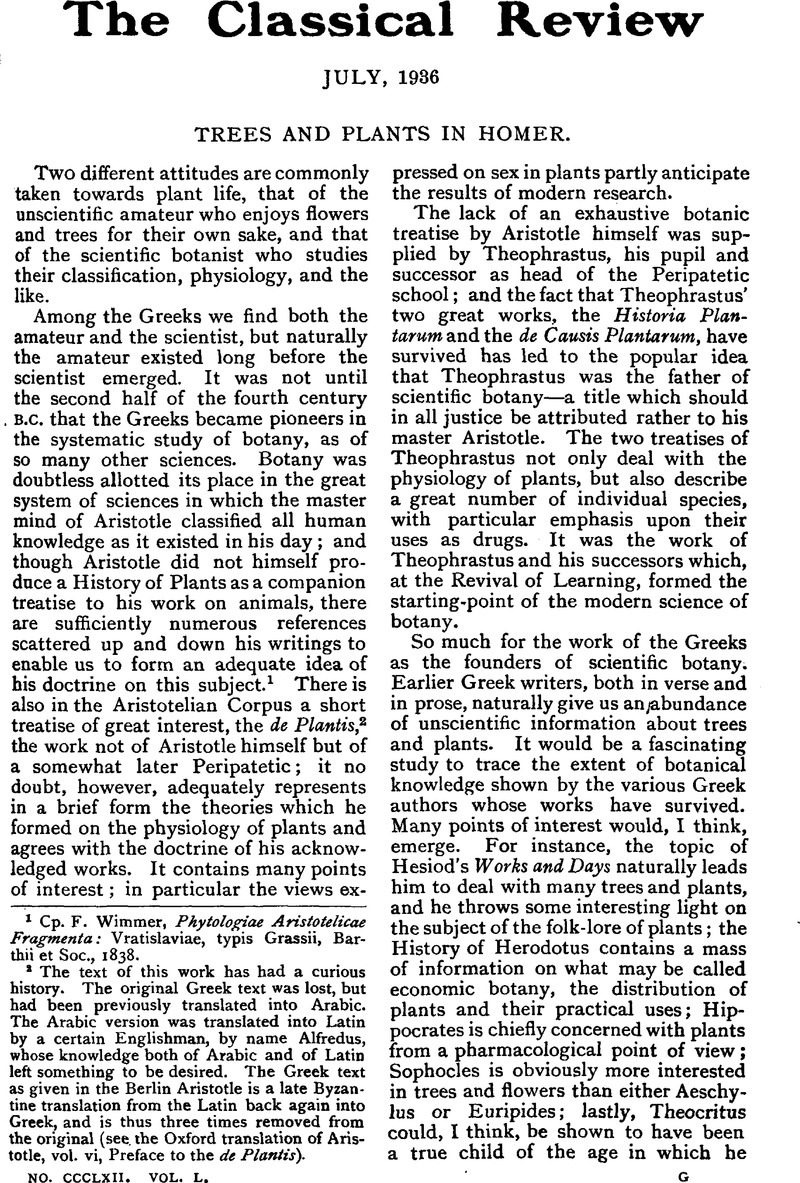Article contents
Trees and Plants in Homer
Published online by Cambridge University Press: 27 October 2009
Abstract

- Type
- Review Article
- Information
- Copyright
- Copyright © The Classical Association 1936
References
page 97 note 1 Cp. Wimmer, F., Phytologiae Aristotelicae Fragmenta: Vratislaviae, typis Grassii, Barthii et Soc, 1838.Google Scholar
page 97 note 2 The text of this work has had a curious history. The original Greek text was lost, but had been previously translated into Arabic. Th Arabic version was translated into Latin by a certain Englishman, by name Alfredus, whose knowledge both of Arabic and of Latin left something to be desired. The Greek text as given in the Berlin Aristotle is a late Byzantinetranslation from the Latin back again into Greek, and is thus three times removed from the original (see. the Oxford translation of Aristotle, vol. vi, Preface to the de Planiis).
page 98 note 1 See Sargeaunt, John, The Trees, Shrubs and Plants of Virgil, Oxford: Blackwell, 1920.Google Scholar
page 98 note 2 The quotations from the Iliad are given by kind permission from Sir William Marris' translation (Oxford University Press, 1934).
page 98 note 3 The quotations from the Odyssey are given by kind permission from Dr. J. W. Mackail's translation (Oxford, at the Clarendon Press, 1932).
page 101 note 1 J. Sargeaunt, op. cit. pp. 59, 60.
page 103 note 1 The word used is πρασαι which is also used in the New Testament in a picturesque phrase, where, at thefeeding of the five thousand, the people sat down πρασαι,πρασαι ‘group by group’ like well-arranged flower beds (Mark vi, 40).
- 7
- Cited by


